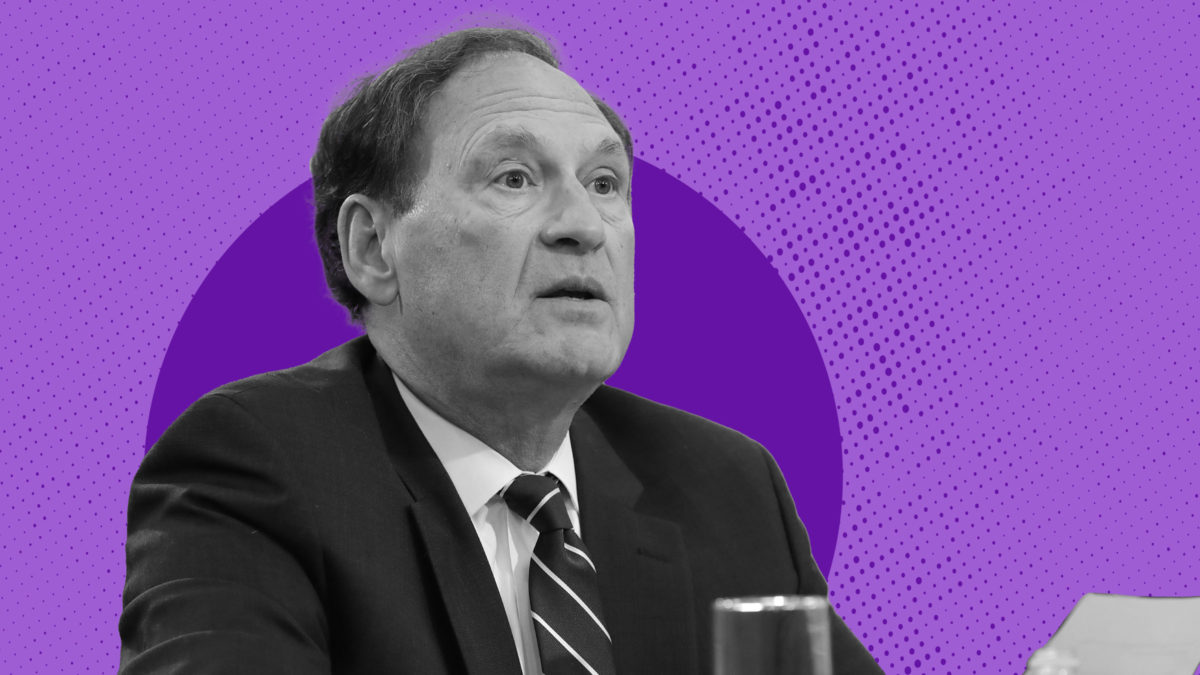On Thursday, the Supreme Court handed down its opinion Vega v. Tekoh, a case about the consequences that police officers may face for failing to warn suspects about their rights under Miranda v. Arizona before interrogating them. In a 6-3 opinion by Justice Samuel Alito, the Court held that cops can’t be sued under a federal civil rights law known as Section 1983 for taking a statement from a suspect who hasn’t received their Miranda warnings—even if that statement is later used against the suspect in court. That means less deterrence for cops who ignore civil rights, and fewer protections for people facing police interrogation.
As Justice Elena Kagan explained in dissent, the decision undermines Miranda by limiting the remedies available for its violation. A defendant whose unwarned statement is introduced against him in court—that is, a person whose Miranda rights have been violated—can move to suppress the unwarned statement. If he fails, he risks being wrongfully convicted and spending years in prison. Even if he eventually gets his conviction reversed, Justice Kagan asks, “what remedy does he have for all the harm he has suffered?” The answer, now, is none. He can’t sue the prosecutor who introduced the statement, because the prosecutor is absolutely immune from civil liability. And now, after Vega, the defendant can’t sue the cop who took the statement, either.
Cutting the legs out from under Miranda is bad enough. But it’s not the most dangerous thing about Vega. Throughout the opinion, the Court describes Miranda as a “prophylactic rule.” In plain English, that means that Miranda warnings aren’t directly required by the Constitution, but are instead judicially-crafted rules designed to protect people’s core Fifth Amendment right against compelled self-incrimination. In a footnote, Alito questions whether the Supreme Court even has the “authority to create constitutionally based prophylactic rules”—like Miranda—“that bind both federal and state courts.”
For now, he says, the Court will treat Miranda as good law. But Alito’s signal to prosecutors’ offices is clear: Miranda is suspect, and we’re willing to entertain arguments that we should do away with it for good.
It gets worse still. The footnote implies that several other foundational “prophylactic” criminal procedure rules might also be ripe for overruling. To do so, Alito cites a series of law review articles that analyze and critique these “prophylactic” rules. Some cases are perhaps less familiar than Miranda: United States v. Pearce, for example, held that in order to ensure that vindictive prosecutors do not retaliate against a defendant who successfully appealed his first conviction, any sentence imposed on retrial that is harsher than the original must be clearly explained in the record, and based upon the defendant’s conduct since the first conviction. Another article suggests that United States v. Wade, which held that the Sixth Amendment right to counsel applies during post-indictment lineups, is also a “prophylactic” rule.
More alarmingly, one of the articles identifies Mapp v. Ohio, the famous Fourth Amendment case that established the exclusionary rule—holding that evidence obtained illegally cannot be introduced against a defendant at trial—as a prophylactic-rule case. The cited article, Constitutional Common Law by Professor Henry Monaghan, argues that Mapp is neither “part and parcel of the underlying Fourth Amendment right nor a necessary remedy for it.”
The exact contours of Court’s apparent openness to reconsidering its criminal-procedure precedents remains to be seen. But the overall posture of the Court towards constitutional rights is clear: Across doctrines, the Supreme Court will undermine constitutional rights by weakening or overruling the judiciary’s power to meaningfully enforce them. That’s what the Court did earlier this Term in Egbert v. Boule, when it held that Customs & Border Patrol agents cannot be sued for violating your constitutional rights. That’s what it did in Whole Women’s Health v. Jackson, when it held that abortion care providers couldn’t sue in federal court to stop clearly-unconstitutional anti-choice laws from going into effect. It’s what the Court does every time it reaffirms the doctrine of qualified immunity, which protects police officers and other government officials from being sued when they violate people’s constitutional rights. And it’s what the Court just did in Vega, too, by withdrawing the ability to sue cops for Miranda violations.
Cases like Mapp and Miranda have been around for a long time. They’ve become ingrained in our culture: Solemn Miranda warnings and fights to exclude illegally-obtained evidence at trial are familiar sequences for police procedural enthusiasts. But precedents are only as safe as the Supreme Court wants them to be. This “just-asking-questions” footnote in Vega is a trial balloon floated by a Court that has no qualms about overruling precedent it doesn’t like. When it comes to protections for criminal defendants, nothing is safe.

